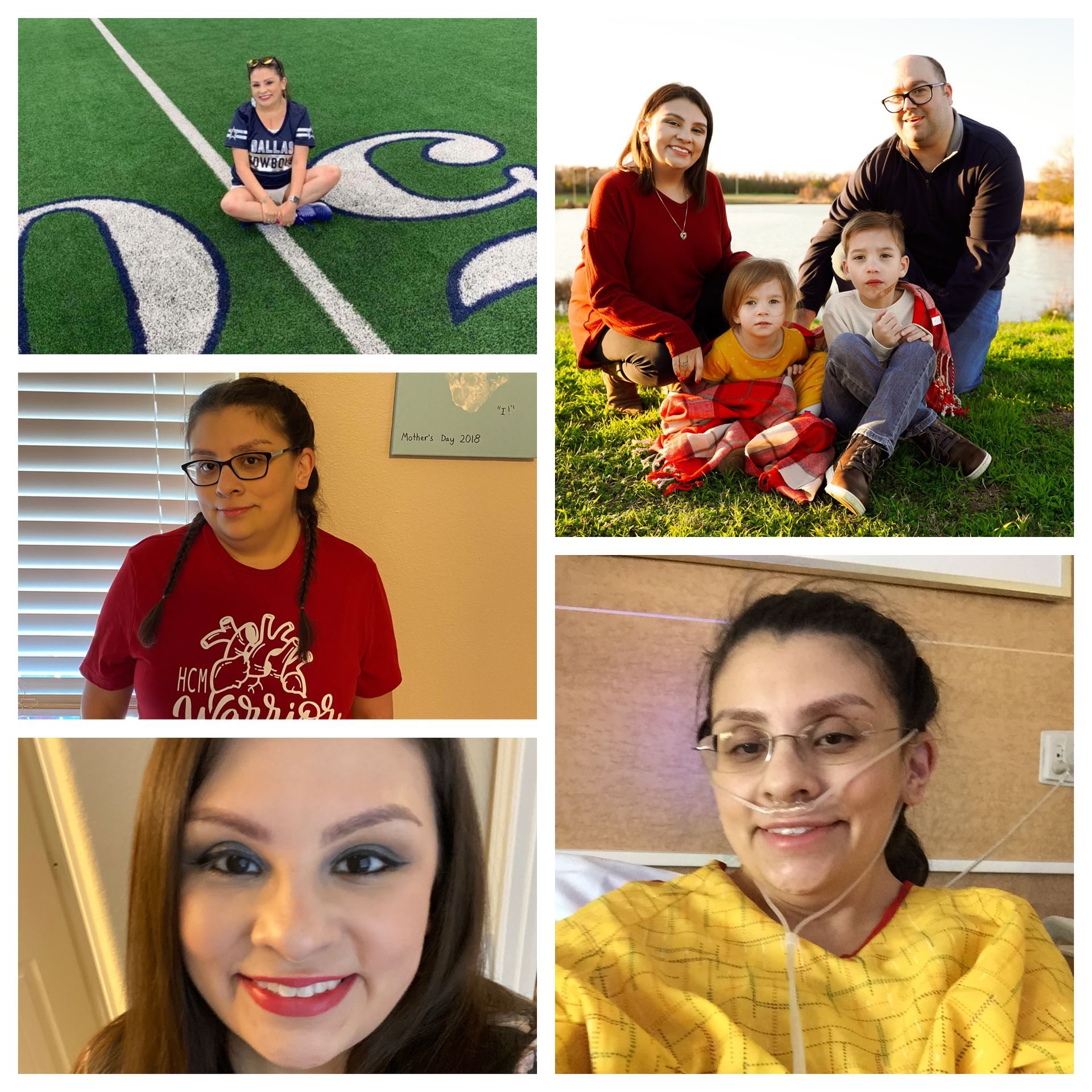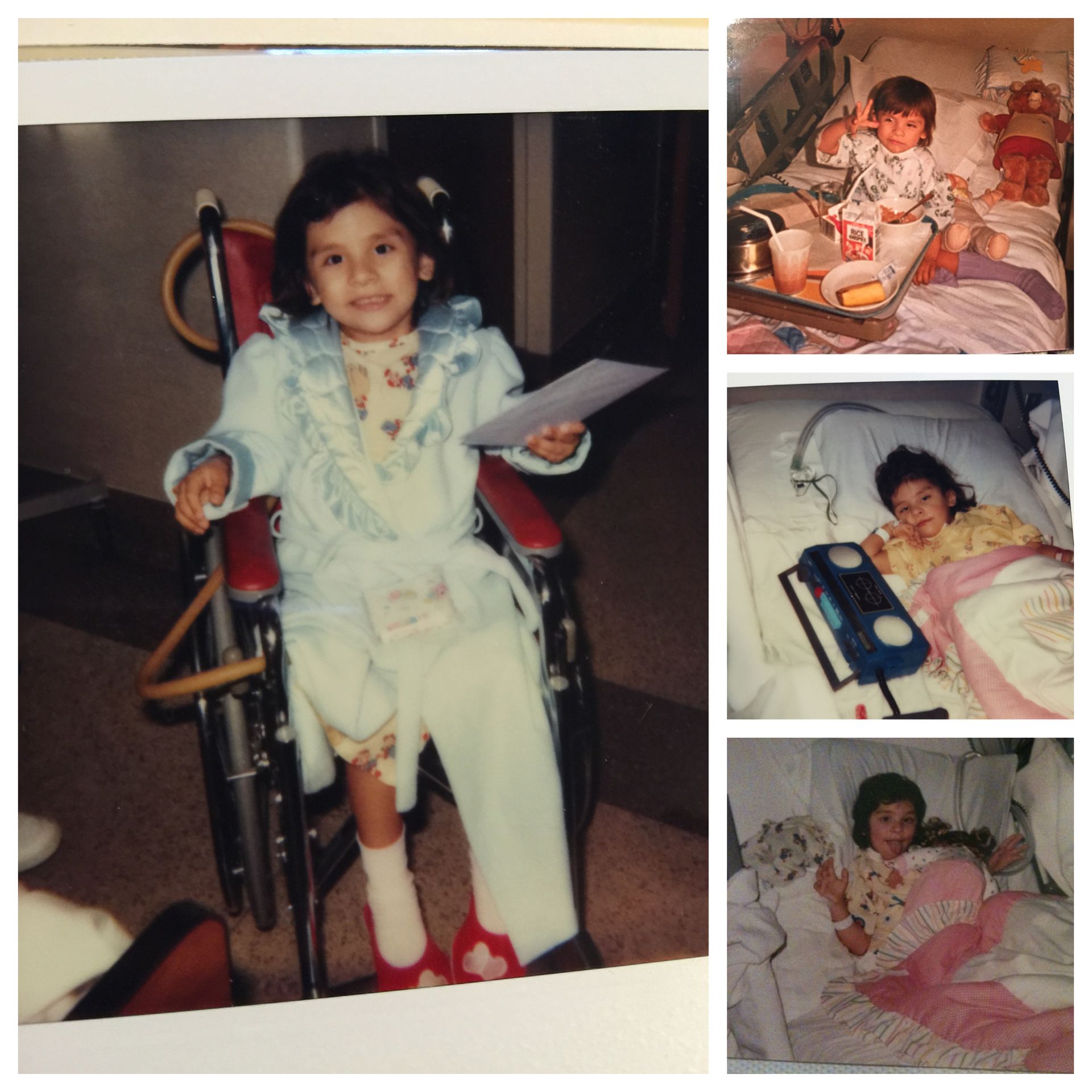Faces of HCM
Kristen Arechiga
Hypertrophic Cardiomyopathy is a lifelong disease with no cure, but I have been around for over 41 years, and every day is special and a blessing to be with family and see my kids grow.


I was diagnosed with Hypertrophic Cardiomyopathy in 1983, at 16 months old. I suspect that other family members on my mother's side may have had it but were never officially diagnosed. As a baby, I started turning blue, sweating, and crying excessively. My parents knew something was wrong but couldn’t get any doctors to listen. Of course, my parents and grandparents would not give up, so they took me to a cardiologist in Houston, Texas. The cardiologist told us that she was just learning about a congenital heart disease called Idiopathic Hypertrophic Subaortic Stenosis. This is an outdated term for what we now call Hypertrophic Cardiomyopathy. The doctor needed to run more tests to confirm this condition, and not long after, I was officially diagnosed.
After diagnosis, my local cardiologist suggested that my parents take me to the Mayo Clinic in Rochester, Minnesota, for further care with doctors and surgeons who were trained for this disease. It was there that I had a Myectomy (open heart surgery) at the age of 3, followed by a mitral valve replacement at 5. My care team at the Mayo Clinic was excellent, and I continued yearly visits until I was 16. I went on to live a normal adolescent life with special accommodations at school. I had limits on what I could do physically and wasn’t able to participate in physical activities, which made me feel singled out. Though I made an effort, I would have a hard time keeping up with the other students as well as my brothers, friends, and cousins. High school came around, and I started to slow down physically. I would have to leave class 5 minutes early to make my next class on time. The special treatment singled me out, and others made fun of me.
I graduated high school in 2000, and my local cardiologist told me that I might need to have my valve replaced a second time. After a heart catheterization, heart echo, and countless other tests showed I had outgrown the mitral valve that was put in when I was 5, I needed an adult mechanical mitral valve. This was my 3rd heart surgery. I remember more of this surgery because I was older. I’m not going to lie; the recovery was not fun, but I wasn’t in school then, so I could concentrate on recovering. I was actually sitting on my couch when I saw the 2nd plane crash into the World Trade Center on what we sadly call 9/11.
I went on to graduate college in 2005. I worked as much as my heart would allow me physically. HCM was progressing and taking over my life as I tried to work harder to keep up. Finally, I had to stop working in my mid-20s because I couldn’t make it through a 4-hour day. Through it all, I met Matthew, the love of my life, who sticks by me through my worst and best of times. I am forever thankful for him.
At the age of 30, I decided to have a hysterectomy, which was a very hard choice to make. Having children with Hypertrophic Cardiomyopathy was possible, but my doctor told me that it could be a choice between myself or my baby. I did not want my family or Matthew to have to choose between me and a baby if that happened! I have since adopted two beautiful children who keep me busy, and I would not trade them for anything. In 2016, I developed a blood clot in my heart and went into heart failure. I was rushed into ICU, and a heart surgeon came to see me. He said if we can’t dissolve this clot with blood thinners, we will be forced to open you up and replace the valve. Having a fourth heart surgery would be very risky, and I had never prayed so hard or been so scared when I had a 6-month baby boy who needed me. Thank goodness the blood thinner worked, and I didn’t need to have another open heart surgery.
I have had many other health issues. At 15, I had to have my gallbladder taken out, and that left me with stomach problems. I have neck and back problems due to my heart surgeries. In 2021, I had a mini-stroke due to Hemiplegic migraines. I was in both speech and physical therapy after. I have balance problems, and I am supposed to walk with a cane, but I only use it on days I really need to. I am on 18 pills a day, and those cause side effects, but the medications keep me going, so that’s just a small price to pay.
Since my diagnosis, I have also had five ablations for arrhythmias Aflutter,afib and V-tach and a pacemaker, which was later replaced with a defibrillator. Just when I think I’m stable, another curve ball gets thrown at me. Having HCM is not only hard on your body, it takes a toll on you mentally. We should talk more about the mental part of having HCM. I have battled with depression since I was probably 15. Having your chest cut open 3 times and having countless other health issues is rough on the mind.
After having my ICD placed, I started having bad anxiety, to the point that I wasn’t sleeping or wanting to eat. I was afraid of my heart stopping while sleeping, even though the ICD would not let that happen. I would catch myself going to sleep and wake up panicking that I was falling asleep. I am getting better with anxiety, but I think I’ll always live with it, and you know what? It’s ok to have depression and anxiety, and it’s ok to be open with people about it.
Today, my team continues to monitor my disease. I stay on top of my medications and doctors’ appointments and listen to my body when I don’t feel well. I rest on bad days and make the most of the good ones. Hypertrophic Cardiomyopathy is a lifelong disease with no cure, but I have been around for over 41 years, and every day is special and a blessing to be with family and see my kids grow.
